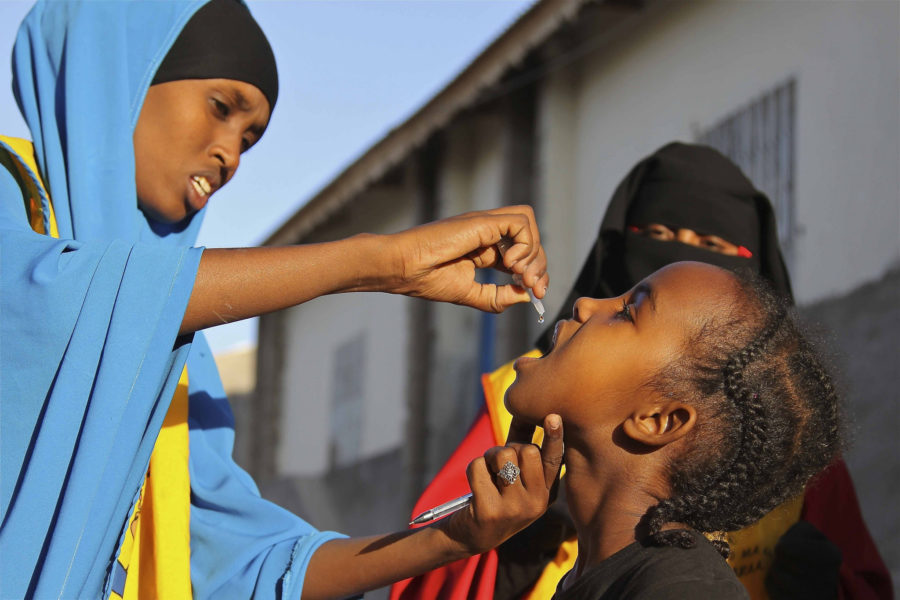Insecurity and displacement constraining polio eradication in Somalia-WHO/UNICEF

Insecurity and displacement of populations driven by conflict pose a major challenge to eradicating polio in Somalia, the WHO and UNICEF have said but noted sustained immunization efforts are bearing fruits.
In marking the World Polio Day today, the World Health Organisation (WHO) and UN International Children’s Emergency Fund (UNICEF) said reaching out to children from mobile and displaced communities remain its single most challenge.
“Today, we face a persistent lack of access to children due to insecurity, population displacement driven by conflict and natural disasters, and a struggling health system, all of which have contributed to low immunization rates in children,” said Dr. Ghulam Popal, WHO Somalia Representative. “This has seen the emergence of polioviruses that are highly contagious and spread through poor hygiene. But a simple series of doses of the polio vaccine will protect a child for life.”
The two UN bodies noted collaboration with health authorities and partners in Somalia is helping to stop two concurrent outbreaks of the vaccine-derived polio-virus which were confirmed late 2017. WHO said early this month it had identified two cases of type 2 and type 3 vaccine-derived poliovirus in inaccessible areas of Lower Juba in southern Somalia.
Oral Polio Vaccines (OPV) contain weakened vaccine-virus which when excreted can continue to circulate and can still find a life-line in under-immunized children. This results in vaccine-derived poliovirus.
“Every day, frontline workers are identifying children who need to be vaccinated, often in highly volatile areas,” said Steven Lauwerier, UNICEF Representative in Somalia. “They are knocking on doors in communities and visiting camps for the internally displaced to educate families on the benefits of polio immunization and to deliver vaccinations. These are the unsung heroes in the fight against polio.”
The nationwide immunization conducted this month reached 2.6 million children while a similar campaign is slated for October 29 to November 1. The two UN bodies noted that polio teams are currently reaching out to communities to identify polio symptoms which include sudden onset of floppiness and inability to move arms and legs – in children under 15 years of age.
Children with these symptoms should be taken to the nearest health facility as soon as possible to receive timely attention.
The theme for this year’s World Polio Day is ‘Bold Steps to End Polio’.